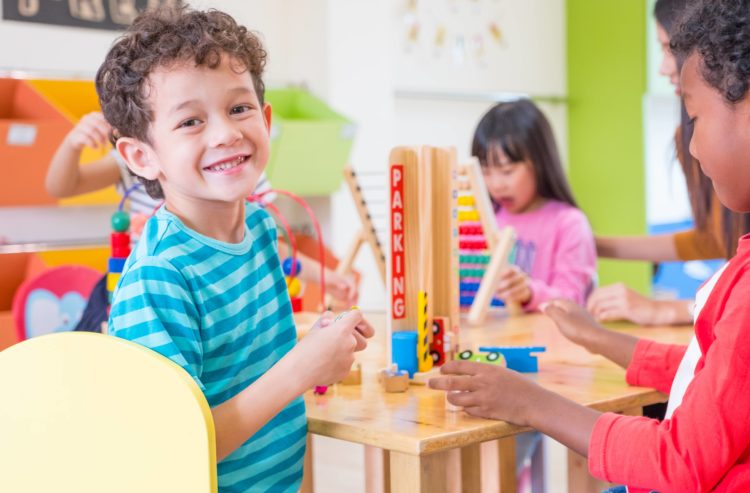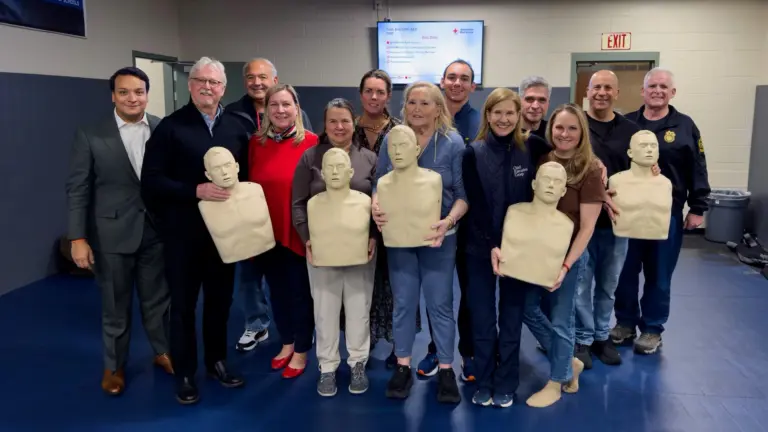
 By Amy DeNicola-Hickman
By Amy DeNicola-Hickman
“Is my Child Ready for Kindergarten” Part 3- Social Emotional
The most talked about area of child development during the pandemic has been social emotional skills. It is key to success in life. During the early childhood years we break this down to healthy attachments to others, self regulation, recognizing and responding to emotions, self awareness/concepts and social relationships. This sounds like a monumental task but you as a parent have been teaching these skills since the moment your child was born.
Because you have been responsive to your child as an infant you have built a strong and healthy attachment that is the foundation for all social emotional learning. As a parent, you respond promptly and sensitively when they are in distress. You take interactive turns with your child when you play and talk. Most importantly you are always available to your child both emotionally and physically. This builds a healthy attachment and now allows your child to begin to expand these healthy relationships with other trusted adults (preschool teachers, camp counselors, caregivers). Children who are entering Kindergarten are exploring new places and may need some support to adjust to the new setting and new adults. Over the first week of school teachers are prepared for a few tears and have lots of tried and true tricks up their sleeves to comfort students who are managing a separation and adjusting to a new situation. Be patient with your child and yourself during this time.
Children at this age are also learning self regulation. They begin to be able to use some of the cues in the environment to assist them. They will continue to develop their skills through second grade. Teachers will use schedules with pictures and songs/music for transition from one activity to another to assist children with learning how to complete these tasks. Teachers also may have reinforcement practices in the classroom for following the school norms and regulating their emotions. Some ways you can support your child at home with self regulation for very young children are:
Create a morning and or bedtime routine and follow it consistently. Use pictures for your child to follow. They can be found all over the internet under visual schedules. Have your child learn to follow it as independently as possible.
Use strategies to support sharing: When little Jorge is playing with the toy I want what can we do….all mommy’s and daddy’s have a timer on their phone…set a timer for two minutes (no longer please) and help us wait by singing a song or reading a book….when the timer goes off we get a turn….reset the timer for Jorge who gets the toy back again in two minutes….
Use strategies for problem solving: We are out of Mia’s favorite fruit that she wants for snack and she is upset….offer two other choices for snack. Have her help you “write” a reminder to buy the fruit next time you go to the supermarket.
Emotions are a very difficult topic for many children to understand. Emotions do not come with a tangible example. There is no “happy”. You just feel happy. Children need to learn the labels of their feelings first. They do this by hearing parents and caregivers label them “wow you look happy you are smiling playing with that truck” “I’m sorry you fell down and are crying and you are sad”.The more children hear and talk about feelings the higher their social emotional functioning. It is an exceptionally powerful tool to use emotion words. Teachers and families continue to develop skills to express, recognize and respond to emotions as they enter Kindergarten. Here are a few examples:
“Model” emotions and feelings…”I am frustrated waiting in line. I sing a song when I wait”…ask your child how they are feeling…if they are unable to tell you verbalize for them “I can tell you are feeling____” children need constant practice with this and the more you describe and model the better they will be with talking about their feelings.
Look at pictures in magazines and books discussing facial expressions; happy, sad, worried, angry, tired, thinking, frustrated, surprised, scared, silly.
Read stories that are centered around emotions and talk to your child about the theme of the book. (Ex: The Grouchy LadyBug By Eric Carle, What makes you Grouchy?) Any of our local libraries can assist with books on emotions.
As children are entering Kindergarten, they also begin to develop social relationships. They want to help adults, play with peers, and need to problem solve. It is important that we support children at this age in developing these skills and not just complete these skills for them. The skills they are learning are very important in maintaining relationships and independence in the future.
Give children the tools they need to play cooperatively with peers. Turn taking takes practice. Play games with your child and a sibling or peer at home where turn taking needs to occur (candyland or a match game are a good start). Have your child verbalize “my turn” and “your turn”
Teach your child the vocabulary of problem solving: “ I think we are having a problem here. How can we solve it?” “Can we set a timer and take turns?” “Can we find another XXX so you both have that toy?” “Should we ask for help?” “Should we play together” “Could I say Please stop” “Could I say Please” “Could I share” “Could I trade”
Have your child begin to help with household chores. Small children can set the table, match socks from the laundry, stir and help measure for baking, dig and plant seeds in the garden…there are so many things and it builds so much self confidence.
Finally children this age are developing self concept and self competence. We need to support learning experiences that develop skills in these areas for our littlest learners. When I went to Kindergarten many many moons ago, my teacher, Mrs. Sacks, taught me to state my first and last name, phone number and my address to anyone who would ask. The self identification we are looking for has changed dramatically. We want our Kindergarteners to be able to identify themselves as a part of a group, what roles they play and what their preferences are. Talk to your children about being a big sister and a great artist or a football player. We want our Kindergarteners to be confident to take some risks and try new tasks (with adult support) and show pride in their accomplishments. To support children in this area is to praise them for trying even when it is hard and even when something fails. Support them to try again and be resilient in their efforts.
If we want our children to be successful, building social emotional skills is key. Pandemic or no pandemic, social emotional skills are a cornerstone of the kindergarten curriculum. Look for my next articles on communication and literacy coming soon!



